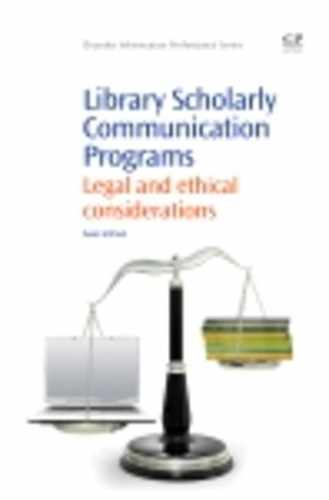Part 4 The road forward
At its core, this book is dedicated to helping academic libraries create the comprehensive intellectual infrastructure (e.g., policies and procedures) necessary to foster ethical scholarly communication programs. This final part offers strategies for developing that infrastructure in a way that is manageable and that will encourage the sustainability of libraries' programs.
One of the best ways to ensure that the process of building a program is manageable, and does not become overwhelming, is to have realistic expectations about what it is possible to do prior to launching a program or service. In particular, when considering policy development, it is important to acknowledge that it is virtually impossible to anticipate and prepare a policy beforehand for every ethical issue that may be encountered (even this book has not captured every possibility). Recognizing that, the call to policy development throughout the book should not be construed as a requirement to immediately build a complex infrastructure that addresses every law or ethical concern raised here. Indeed, to insist that every possible eventuality be predicted prior to launching an institutional repository or a scholarly journal would be to condemn that repository or journal to an excruciatingly slow rollout, which could stifle enthusiasm for the project. A more reasonable, and realistic, strategy is to create initial policies with the expectation that they will change and evolve as new issues (or new ways of considering known issues) become evident after the launch of a service. Ultimately, the best policies are at least partially “inductive”: they are grounded in experience and reflect the realities of the local legal and ethical context.
In order to better understand the realities of the local context, it is critical to engage in dialogue with relevant campus stakeholders – for example, talking with health professions faculty about common privacy issues within health research. This type of outreach is important not only to ensure that policies are not created in isolation, but also to promote the library’s services: at the end of the day, the strength of a library’s scholarly communication program will be determined not by the clarity (or quantity) of its policies, but by the library’s ability to educate its community about why its services – and the policies that shape them – matter. To that end, this part closes with a discussion of outreach and education strategies for faculty, staff, and students.
